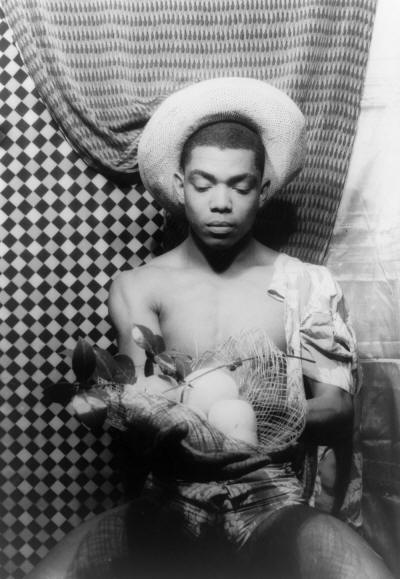

Queer Places:
Rose Hills Memorial Park Whittier, Los Angeles County, California, USA, Plot Garden of Affection, Section 16, Lot 1782, Grave 4
 Alvin
Ailey (January 5, 1931 – December 1, 1989) was an African-American
choreographer and activist who founded the Alvin Ailey American Dance Theater
and the Ailey School in New York City. He is credited with popularizing modern
dance and revolutionizing African-American participation in 20th-century
concert dance. His company gained the nickname "Cultural Ambassador to the
World" because of its extensive international touring. Ailey's choreographic
masterpiece Revelations is believed to be the best known and most often
seen modern dance performance. In 1977, Ailey was awarded the Spingarn Medal
from the NAACP.[1]
He received the Kennedy Center Honors in 1988. In 2014, President Barack Obama
selected Ailey to be a posthumous recipient of the Presidential Medal of
Freedom.[2]
Alvin
Ailey (January 5, 1931 – December 1, 1989) was an African-American
choreographer and activist who founded the Alvin Ailey American Dance Theater
and the Ailey School in New York City. He is credited with popularizing modern
dance and revolutionizing African-American participation in 20th-century
concert dance. His company gained the nickname "Cultural Ambassador to the
World" because of its extensive international touring. Ailey's choreographic
masterpiece Revelations is believed to be the best known and most often
seen modern dance performance. In 1977, Ailey was awarded the Spingarn Medal
from the NAACP.[1]
He received the Kennedy Center Honors in 1988. In 2014, President Barack Obama
selected Ailey to be a posthumous recipient of the Presidential Medal of
Freedom.[2]
Ailey kept his life as a dancer a secret from his mother for the first two years.[5]
Ailey died on December 1, 1989 at the age of 58.[13] To spare his mother the social stigma of his death from HIV/AIDS, he asked his doctor to announce that he had died of terminal blood dyscrasia.[5]
While Ailey maintained a largely closeted persona in regards to his sexuality, his sexuality did come through in his works. In Ballets like Quintet (1968), Flowers (1971), and The Mooche (1974), Ailey used grandiose and lavish costume and set design that displayed campy excess which was, at the time, prevalent and appreciated by some gay audiences.[14] The imagery used in his dances displayed male and female homosexuality, evident in works he made for the American Ballet Theater (The River, 1970) and his own company (Streams, 1970).[14] These works incorporated parts that acknowledged a sensual, intimate bond between men and women in dance of same-sex partnering framed by opposite-sex encounters.[14] His works also routinely enlivened male homosexual spectatorship in its depictions of glamorous masculinity, as in the hypermasculine working men of Blue Suite, and the sensitive but sensually deprived religious archetypes of Revelations and Hermit Songs (1961), attuned to the Leontyne Price recording of Samuel Barber's song cycle.[14]
My published books: